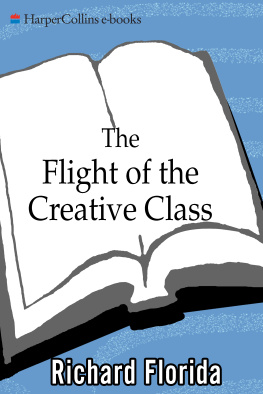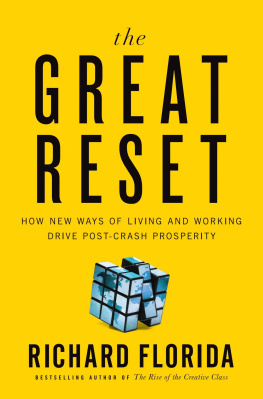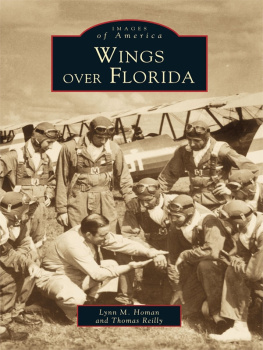In spring 2006, almost one year to the day after the original edition of this book came out, I was working in my garden with our landscaper. A soft-spoken man in his early forties, hes the father of a young family and an immigrant from Latin America.
We got to talking about the march in Washington, D.C., for immigrants rights, which had taken place the week before. He was there, he said, because he saw America as a place that gave him so much opportunity and he wanted that for others. He leaned on his truck, exhausted from the short nights and long work hours he was putting in.
He got up at 3:30 A.M. every morning, he explained to me, so that he could work on the books before rounding up his crew at 5:30. He worked outside until dusk, went home to his wife and children, made phone calls to clients and customers after his kids were in bed, turned in by 10 or 11 P.M. , and got up to do it all over again four or five hours later.
His story inspired me. Im sure it was partly the way he reminded me of my own grandfather. An Italian immigrant who died before I was born, my grandfather spoke only the most rudimentary English. But he owned a truck that allowed him to sell curtains and linens door-to-door in Newark, New Jersey, in the 1920s and 1930s. In front of me was that same kind of man, a humble immigrant, far from his homeland, creating opportunity for himself and for others building a small entrepreneurial business.
Like my own grandfather, he wanted his children and his grandchildren to grow up in a great country, without stigma, and with more opportunity than he had back home. He would work hard to give them everything he didnt have. Like my grandfather and my father, what he wanted most to give them was a place where they could find opportunity and an education they could use to better themselves. With a dedicated father like that, theres no telling what his children and his grandchildren might someday go on to accomplish.
I was reminded of the young man I write about in this very book, who challenged me and Iowa governor Tom Vilsack at a major conference on that states economy to understand that economic growth was about more than attracting high-skilled immigrants. He stood up proudly and told us that it was he and four other young people, all the children of unskilled Hispanic and Latino immigrants, who remained in Iowa after graduating from Grinnell College. They were the only five who did so, because they wanted to give back to the state that gave their families such opportunity.
I was also reminded of the high school boys from outside Phoenix, Arizona, who had built a robot they called Stinky in their backyard. They entered Stinky in a major robotics competition and beat the kids from MIT and Stanford and Carnegie Mellon. Not one of those boys planned to attend college; their families couldnt afford it.
I thought then about the young man at Princeton, Dan-el Padilla Peralta. Despite being raised in povertynot to mention homeless sheltersPadilla had gone on to a distinguished undergraduate career. He was president of his class and one of the nations and the worlds leading young classics scholars. He finished as Princetons salutatorianyet was unable to claim a scholarship he won to Oxford University without being barred from returning to the United States for ten years. All because his mother was an illegal immigrant.
My thoughts raced to the case of the distinguished Indian scholar, Goverdhan Mehta, president of the International Council for Science, a leading scientific organization, who was denied entrance to the United States after several attempts to file the necessary paperwork for his visa. Dealing with the U.S. consulate was the most degrading experience of my life, Mehta said.
I had argued in this book that openness to talented and creative people from around the world was the secret weapon of American economic competitiveness. Unfortunately, it looks like the arguments I set forth are more relevant now than ever before.
Turn on the TV any given evening, and youre bound to see Lou Dobbs railing on the threat that foreigners pose to America. On one side, the pundits say, is the threat of outsourcing and off-shoring, of high-paying American jobs moving to China and India. On the domestic front, theres the additional threat posed by immigrants. High-skilled H-1B visa-holders replace American software developers, while low-wage illegal immigrants take away service jobs. Never mind that the best research has found that immigrants dont necessarily replace native-born Americans, but tend take on work that they either cannot or are not qualified to do.
New York Times columnist Tom Friedman tells us the world is flat, that it has become one gigantic level playing field. Opportunities are now boundless for all the globes citizens, and the result is cause for concern for Americans whose jobs are threatened by increasingly enterprising Indian and Chinese people. In a telling phrase, Friedman writes that you no longer have to emigrate in order to innovate.
Friedman gets half the globalization story right. There are powerful forces causing some kinds of economic activity to decentralize and move away from America and the advanced countries in general. These decentralizing tendencies have been at work for a long time, causing basic industries like automobile and electronics to move to more cost-competitive locations.
But there is a powerful counterforce which Friedman and so many others overlook. Thats the force of concentration, or clustering, as the experts call it. Not just the clustering of firms and industries. Even more important is the clustering of human creativity and talent. Its the powerful economic gains that come when smart and talented people locate in close proximity to one another that the late Jane Jacobs identified more than forty years ago as the major force that animates great cities and urban areas.
Its what the Nobel Prizewinning economist Robert Lucas later called human capital externalities, the productivity and innovation gains that occur when human beings cluster togetherthe basic force for all economic growth and development, according to Lucas. What can people be paying Manhattan or downtown Chicago rents for, wrote Lucas, if not to be around other people?
This powerful concentrating force means that the world is not flat, but spiky. Or, more accurately, it is flat and spiky at the same time. The key is to understand globalization as the result of these two related push-and-pull forces. As economic activity decentralizes into new corners of the globe, innovation, creativity, and the resulting wealth simultaneously concentrate and cluster in great economic regions. I include in this book the article I wrote on this subject, The World Is Spiky, for the Atlantic Monthly. Where the world has become flat, its only when looking from mountaintop to mountaintop, from Bangalore to London to Shanghai to New York. Pretending that someone in rural China, rural India, or rural North America, in the great valleys of the spiky world, can easily connect to the global economy is worse that wishful thinking, it leads us to misinterpret the great challenge we face.
This book argues that the key to economic growth and competitiveness revolves around one key factor: the movement of talent on a global scale. We are seeing one of the greatest migrations in human history, as talented, innovative, and entrepreneurial people concentrate perhaps in twenty or twenty-five Mega-regions worldwide.
America has always hadand still hasone real competitve advantage. It isnt our raw materials or our land mass. It isnt even our technological superiority, though thats a result of the key thing that Im talking about. Our great factories and our work ethic have helped propel us, but it isnt those, either. Rather, its our status over the last century as the worlds most open country, coupled with the ability of our great regionsfrom San Francisco and Los Angeles, to Chicago and New York, to Seattle, Boston, Austin, and Washington, D.C.to act as what Bill Gates calls IQ magnets.








